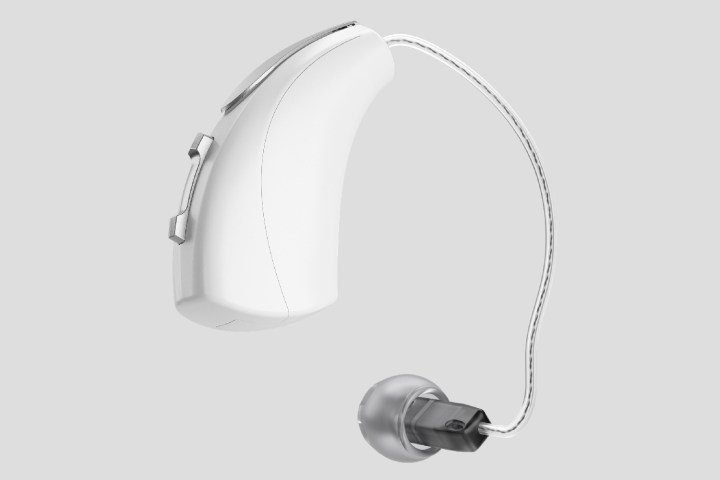
We’ve covered some seriously impressive accessibility devices here at Digital Trends, but in most cases, they’ve all got one major limitation: They’re only trying to restore a certain function to the level that you’d expect in someone without a particular disability. That’s utterly commendable, but with modern technology, it’s sometimes possible to go further than this — to actually try and raise certain senses or functions beyond what you might normally expect to find.
That’s definitely the case for a smart new hearing aid from Starkey Hearing Technologies. With its newly launched Livio A.I. device, the company is reinventing the humble hearing aid for the machine learning generation. Not only does the Livio hearing aid enhance your ability to hear things, but it can also automatically translate foreign languages, and even track physical and mental well-being. Think of it like the babelfish from The Hitchhiker’s Guide to the Galaxy — only with some extra cool tech thrown in there for good measure!
“I believe Livio A.I. heralds the hearing industry’s iPhone moment,” Dr. Achin Bhowmik, Starkey’s chief technology officer, told Digital Trends. “The mobile phones prior to the iPhone were single-purpose devices, allowing us to make phone calls. In contrast, today’s smartphones are multipurpose devices. Hearing aids have so far been single-purpose devices as well, helping people hear better by amplifying sound. We are changing that with Livio A.I. With embedded sensors and artificial intelligence, we are turning the hearing aid into a multifunction health-monitoring and multiuse device that will help us lead better lives in many more ways. This is driven by our mission to improve human lives through technology.”

The next-gen hearing aid can translate between 27 languages, courtesy of a companion smartphone app called Thrive. If an English speaker says something they wish to translate, the words will appear in the selected target language on their mobile device so they can show the other person. If, on the other hand, a person says something in a language the wearer doesn’t speak, the words will be directly translated into spoken English via the earpiece.
The device also offers step-counting features, the ability to quantify your “brain score” based on active listening and social engagement, and smart gestures that allow wearers to control the audio stream from a TV by double-tapping their ear, rather than having to stop and search for the remote.
In the near future, Bhowmik said, the hearing aid will also be able to automatically detect if the user falls down using its in-built sensors. If a fall is detected, the hearing aid will then immediately notify designated emergency contacts by sending alert messages.


